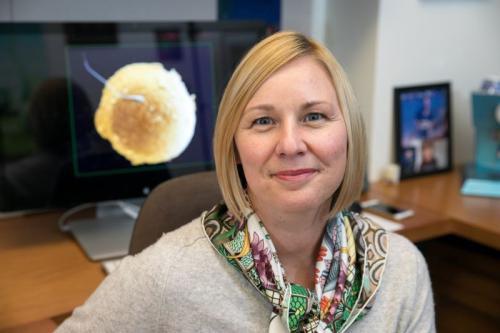
Amander Clark elected vice president of the International Society for Stem Cell Research
Amander Clark, professor and chair of molecular, cell and developmental biology in the UCLA College, has been elected vice president of the International Society for Stem Cell Research, or ISSCR, the largest professional organization of stem cell researchers from around the world. She will begin her term as vice president in June 2021.
Clark is a world-renowned stem cell biologist whose work focuses on pluripotency — the ability certain cell types have to give rise to all of the cells and tissues in the body — and germline cells, which are the cells that create eggs and sperm. The ultimate goal of her research is to expand the understanding of human germline cell development, which could lead to new methods to identify and treat infertility.
She has been an active member of the ISSCR leadership since 2018 and is part of the organization’s task force to update its guidelines for stem cell research and clinical translation. This critical policy document is intended to promote scientific and ethical integrity in stem cell research and calls for rigor, oversight and transparency in all areas of research and translation.
Clark serves on numerous boards, including the Oregon National Primate Research Center, the Monash Biomedical Discovery Institute, the Institute for Biogenesis Research at the University of Hawai’i at Manoa and the David A. Tepper Foundation.
Her research has received numerous awards, including a Young Investigator Award from the Lance Armstrong Foundation, a Research Career Development Award from STOP Cancer, a research award from the Concern Foundation and a Young Investigator Award from the ISSCR.
Born in a small sheep farming community in Victoria, Australia, Clark was first in her family to attend university. She went on to earn a doctorate in developmental biology at the University of Melbourne and performed postdoctoral research at Baylor College of Medicine and UC San Francisco. In 2006, she was recruited to UCLA and became a member of the Eli and Edythe Broad Center of Regenerative Medicine and Stem Cell Research.
